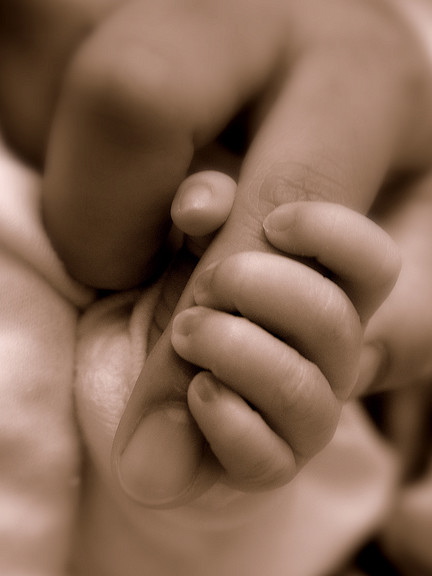
A new study by researchers at UCSF finds that babies can pick up on their mother’s stress and express that with physiologic changes. “Our research shows that infants ‘catch’ and embody the physiological residue of their mothers’ stressful experiences,” says lead researcher Sara Waters, Ph.D., a postdoctoral scholar in the UCSF Department of Psychiatry.
The study included 69 mothers and their 12- to 14-month-old babies. The researchers attached cardiovascular sensors to the mothers and the infants and took baseline recordings from each. To mimic stressful situations, the mothers and babies were separated and then each mother was asked to give a five-minute speech to two evaluators, followed by a five-minute Q&A session.
Some mothers received positive signals from the evaluators, including nodding, smiling and leaning forward. Others received negative feedback, such as frowning, shaking their heads and crossing their arms. A third group of mothers did not receive any feedback.
Mothers who received negative feedback reported greater decreases in positive emotion and greater increases in negative emotion than did mothers in the other two groups, and also showed signs of increased physiological cardiac stress.
The researchers found that the infants quickly picked up on the stress; infants whose mothers received negative feedback showed significant increases in heart rate relative to baseline within minutes of being returned to their mothers. In addition, the greater the mother’s stress response, the greater the infant’s stress response, which the researchers found became stronger over time.
“Before infants are verbal and able to express themselves fully, we can overlook how exquisitely attuned they are to the emotional tenor of their caregivers,” said Waters. “Your infant may not be able to tell you that you seem stressed or ask you what is wrong, but our work shows that, as soon as she is in your arms, she is picking up on the bodily responses accompanying your emotional state and immediately begins to feel in her own body your own negative emotion.”
The researchers say stress can be communicated through several communications channels including odor, vocal tension and facial expressions and they will be studying the role of touch in “emotional contagion.”
The study was published in the journal Psychological Science.





